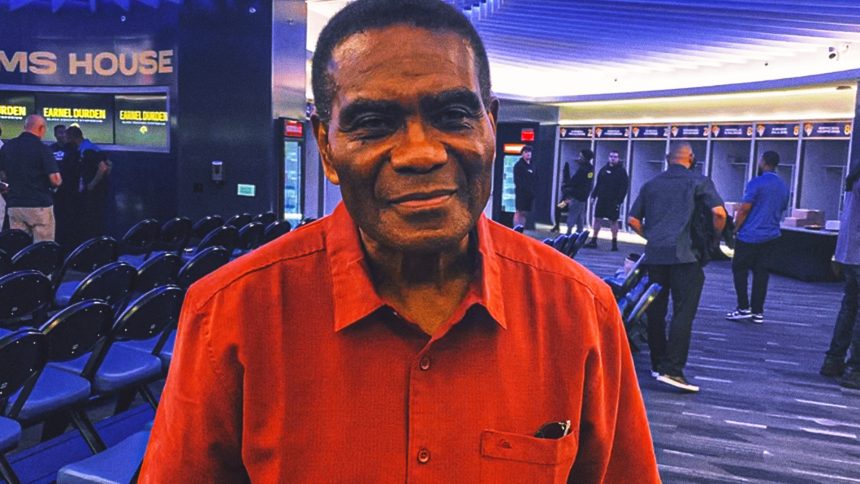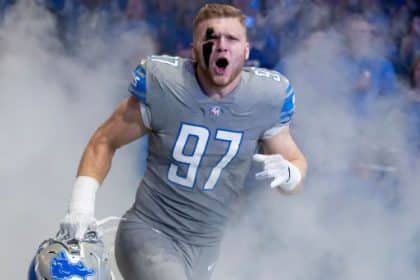INGLEWOOD, Calif. — On Saturday, Earnel Durden accomplished another in a long line of firsts during his storied football career.
Durden was the first African-American student-athlete at Oregon State University and later the first Black assistant coach at UCLA and for the Los Angeles Rams. He served as an NFL assistant from 1971-76 with the Rams, Houston Oilers and San Diego Chargers.
And over the weekend, Durden, who turns 87 on Friday, sat front and center as the namesake of the Rams’ inaugural Earnel Durden Black Coaches symposium. It’s an event created to spark conversations important to the betterment of Black high school coaches in the Los Angeles area.
“When I was a young Black coach growing up, I looked around and I didn’t see anyone like me,” Durden said. “I’m just so happy to see these young guys excelling in coaching, especially young Black coaches. They thought it was worthwhile to come here and learn, and I thought that was just beautiful.”
ADVERTISEMENT
The event is the brainchild of Johnathan Franklin, director of community affairs and engagement for the Rams, as a way for the organization to impact the L.A. community during Black History Month.
“The way that we were able to kind of break down that tough-man wall and just talk as brothers, that’s what I really loved the most,” said Ghalee Wadood, Rams associate manager of high school football, who served as one of the panelists for the event.
Discussion topics included how coaches can manage their health and the mental stress in their daily lives, along with how to better mentor players, helping them understand their value and how to create relationships with college coaches so players can reach the next level.
“It’s really leveraging your own story,” said UCLA cornerbacks coach and special teams coordinator Kodi Whitfield, who followed in the footsteps of his father, former NFL offensive lineman Bob Whitfield, and played football at Stanford. “So, for me, leveraging my story of being able to take care of school and play football at the college level. And now funneling that back into the kids and trying to empower them to do the same thing.”
Alonzo Carter, a longtime high school coach in Oakland who now serves as an assistant head coach/running backs coach at the University of Arizona, emphasized the importance of networking for those in attendance.
“We always look at it from the student-athlete’s standpoint, but what about the minority coaches, or more specifically, the Black coaches? Who can they look up to?” Carter said. “Who is the next Tony Dungy? Who is the next Mike Tomlin, the next Hue Jackson or the next Marvin Lewis? Those are our heroes. The next Antonio Pierce.
“You want to be able to network and make sure you know these people as they are on their journey, so when you continue to grow in the business, you already know these people on the front end.”
Durden also emphasized coaches growing their knowledge of the game.
“I knew a lot about everything,” Durden said. “And I could coach anything. So my ability [to stay] was a lot better, and I could move on if I wanted to because I had things that coaches wanted to have. That’s why it was important for me to learn as much as I could about every position.”
Eric D. Williams has reported on the NFL for more than a decade, covering the Los Angeles Rams for Sports Illustrated, the Los Angeles Chargers for ESPN and the Seattle Seahawks for the Tacoma News Tribune. Follow him on Twitter at @eric_d_williams.
recommended

Get more from National Football League Follow your favorites to get information about games, news and more













